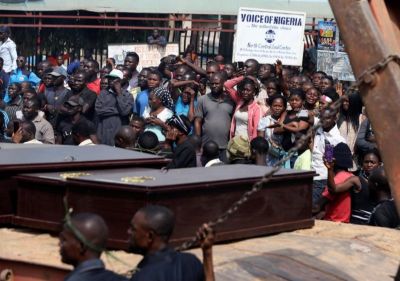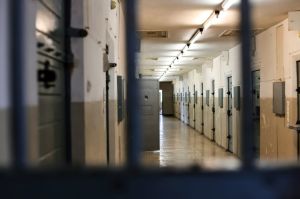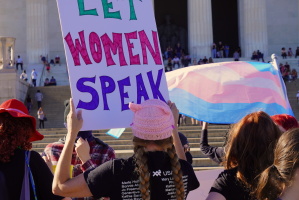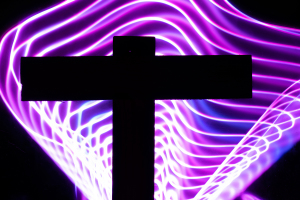Fulani Herdsmen: Radical Islamists or Victims-Victimizers in Age of Global Warming?

On June 26 and 27, clashes between Muslim Fulani herdsmen and local area farmers near the city of Jos, Nigeria, led to the killing of more than 200 persons, mostly Christian farmers. These clashes were one of the worst episodes of what Nigeria's middle belt has been experiencing for years. This year, the conflict between Fulani herders and Christian farmers has taken six times more lives than the more highly publicized Boko Haram insurgency.
Sadly, these attacks and killings are likely to increase in the absence of a comprehensive solution that addresses the root causes. So how can we advocate, and pray, for an end to this injustice?
As an evangelical ministry in Geneva, my office, the Geneva Liaison Office of the World Evangelical Alliance, needs to grapple with these issues, present meaningful assessments and advocate in United Nations circles in the right direction in order to prayerfully serve the churches. Together with the World Council of Churches, we submitted to the United Nations Human Rights Council's current session a written statement. This statement, based on field visits by the World Council of Churches' advocacy officer, sought to echo the voices of our brothers and sisters in Nigeria by urging the Nigerian government to act to stem violence.
We wrote that "religion is being used to justify extremism, violence and killings. The violence has taken a religious dimension, involving Muslims and Christians. Sectarian hostility raises the concern of fueling the conflict." And we added that poverty and the manipulation by political leaders were also causes for this conflict. And we called on the international community to support the Nigerian government, not only militarily, but also as it implements its National Livestock Transformation Plan – addressing the economic root causes of the conflict in Africa's most populated nation.
In stark contrast to our tone and approach, the European Center for Law and Justice (ECLJ) submitted a written statement to the same council session headlined "Requesting that the U.N. Recognize and Put an End to the Atrocities being Carried Out Against Christians in Nigeria." The statement equated the Fulani Herdsmen with Boko Haram and stated that the Fulani "are attacking Christian farmers, destroying homes and churches, and even kidnapping Christian school girls in order to marry them to Muslim men."
Similarly, articles in the Christian Post and in similar media outlets, as well as Christian ministries, condemned "radical Islamists" for their "genocidal Jihad". World Watch Monitor relayed what some Nigerian pastors were saying, that "in recent years, the herders, who once lived peacefully alongside their Christian neighbors, have been responsible for more bloodshed than Boko Haram." One pastor said that Fulani Herdsmen are Boko Haram in disguise.
So, has the 20-million-member nomadic group of Fulani become radicalized by Islam in the past decade? Or is the ever-encroaching drought that is threatening the lives, livelihood and lifestyle of the Fulani tribesmen at least in part to blame?
In its July 2018 report on Nigeria, the authoritative International Crisis Group (ICG) wrote that "the conflict's roots lie in climate-induced degradation of pasture and increasing violence in the country's far north." Aggravating factors in this conflict include the rapid growth of ethnic militias bearing illegally acquired weapons, the failure of the federal government to prosecute past perpetrators or heed early warnings of impending attacks, and the governments' November 2017 anti-grazing laws. ICG's report added that the conflict "has taken on dangerous religious and ethnic dimensions."
So yes, radical Islamic teachings have been used by ethnic militias to justify their existence and their action against the Christian "other." However, I would argue that Christian voices, media and ministries that are shouting "Jihad" and "genocide" are challenging efforts to address the root causes. If we say that this is a terrorist jihadist group bent on ridding Nigeria of Christians, then the solution is to send the military to attack – and drones to bomb – the criminals. But if we say that that the root of this conflict is complex and multilayered – impact of climate change on economic models, access to land, tribalism, impunity, weak rule of law, illegal arms trade, corrupt political and religious leadership, and hateful religious discourse – then the solution would need to account for all of these factors.
Across Africa, climate-induced degradation of pasture is a major threat. The Mbororo nomadic cattle herders frequently traverse the border between Democratic Republic Congo (DRC) and the Central African Republic. Their recent movements are leading to increased communal tension in the DRC, and the violence of herders-farmers is on the rise in that country too.
A simplistic single-lens approach to the conflict in Nigeria will not empower us to address the root causes of this conflict and its aggravating factors, or to support the Muslim and Christian peacemakers in Nigeria, or to channel our prayer in the right direction.
In the years to come, we are likely to hear more and more of threats to Christian brothers and sisters and religiously motivated violence. In reality, real persecution will often be one of many complex variables in situations of conflict and tragedy. We would do well to make a habit of reading a variety of sources and perspectives and questioning explanations that seem too simplistic or divisive, in order to better pray for and serve both the oppressed and the oppressor, and in order to invest the resources God has given us in a more fruitful way in His Kingdom.




























